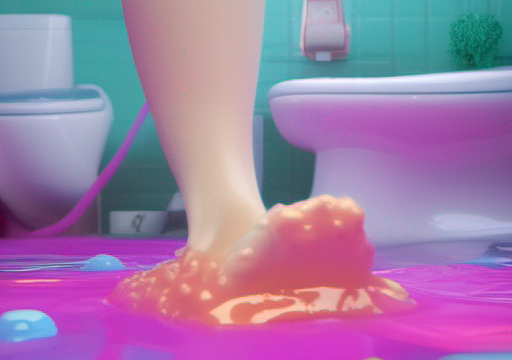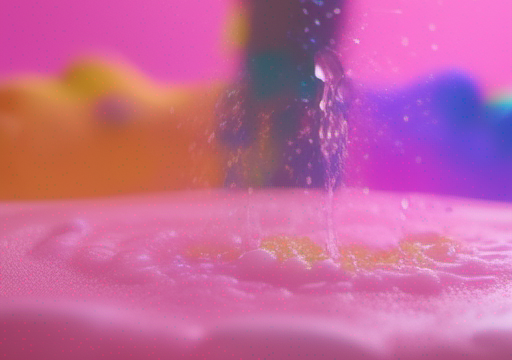
🚨 Seriousness of symptom: normal
Hey there! 👋 In this chapter, we’re going to talk about Foamy urine, a symptom that can be caused by a variety of underlying conditions. 🤔 So, what is Foamy urine? 🤔 Well, it’s exactly what it sounds like – urine that appears frothy or foamy. 💧 This can happen when there’s a buildup of gas in the urinary tract, which can be caused by a range of factors, including infections, kidney disease, and certain medications. 💊
Now, you might be wondering why Foamy urine is a concern. 🤔 Well, in some cases, it can be a sign of a more serious underlying condition, such as a urinary tract infection (UTI) or kidney disease. 🤕 So, if you notice Foamy urine, it’s important to see a healthcare provider to get it checked out. 📅
But don’t worry, Foamy urine can also be a normal and harmless symptom in some cases. 🙅♀️ For example, it can occur after drinking too much caffeine or alcohol, or during pregnancy. 🤰 So, it’s important to pay attention to other symptoms and medical history to determine the cause of Foamy urine. 🧠
In any case, if you notice Foamy urine, it’s always best to err on the side of caution and seek medical attention. 🚨 Early detection and treatment can help prevent more serious complications from developing. 💪 So, keep an eye out for Foamy urine and don’t hesitate to reach out to a healthcare provider if you have any concerns. 🤝

Possible Causes – Foamy urine
When it comes to foamy urine, there are several possible causes that could be at play. Here are some of the most common reasons why your urine might be frothy or bubbly:
🤔 Did you know that a buildup of protein in your urine can cause foamy pee? This is often the first sign of kidney disease, which can lead to kidney failure if left untreated.
💦 Polycystic kidney disease (PKD) is a genetic disorder that can cause small, fluid-filled cysts to grow on your kidneys. These cysts can damage the organs and cause blood in your urine.
🤝 Reduced urine production can be a sign of C3 glomerulopathy, a rare kidney disease that can cause damage to the glomeruli, the tiny blood vessels in the kidneys that filter waste and excess fluids.
💥 Certain medications, such as chemotherapy drugs, can cause foamy urine as a side effect.
🤔 Other possible causes of foamy urine include dehydration, urinary tract infections, and certain medical conditions like diabetes and kidney disease.
💦 It’s important to note that foamy urine can also be a sign of a more serious underlying condition, so if you’re experiencing this symptom, it’s always best to consult with a healthcare professional for proper diagnosis and treatment.
🤝 In some cases, foamy urine may be a sign of a urinary tract infection (UTI), which can cause bacteria to multiply in the urinary system and produce bubbles.
💦 If you’re experiencing foamy urine, it’s important to drink plenty of water to stay hydrated and help your body flush out any toxins that may be causing the problem.
🤔 In summary, there are several possible causes of foamy urine, ranging from kidney disease to medication side effects. If you’re experiencing this symptom, it’s important to consult with a healthcare professional to determine the underlying cause and receive proper treatment.

Diagnosis – Foamy urine
Sure, here’s the content for the diagnosis of foamy urine section:
Diagnosing foamy urine can be a straightforward process if you know what to look for. Here are the steps you can follow to diagnose foamy urine:
1️⃣ First, check the color of your urine. If it’s dark yellow or amber-colored, it could be a sign of dehydration. If it’s pale yellow or clear, that’s normal. But if it’s foamy or frothy, that’s when you should be concerned.
2️⃣ Next, check for any other symptoms like fever, chills, or abdominal pain. If you have any of these symptoms along with foamy urine, it could be a sign of an infection.
3️⃣ Use our Yesil Health AI tool (<https://yesilhealth.com>) to assess your symptoms and determine the likelihood of foamy urine being caused by a urinary tract infection (UTI).
4️⃣ If you suspect you have a UTI, it’s important to see a doctor as soon as possible. They will perform a physical examination and may order a urinalysis or a urine culture to confirm the diagnosis.
5️⃣ If you do have a UTI, it’s important to treat it promptly to prevent complications like kidney damage or sepsis. Your doctor may prescribe antibiotics to help clear the infection.
Remember, if you’re experiencing any unusual symptoms like foamy urine, it’s always better to be safe than sorry. Seek medical attention right away to get a proper diagnosis and treatment plan.
💦 Did you know that foamy urine can be a sign of a urinary tract infection (UTI)? It’s important to seek medical attention if you notice this symptom, as UTIs can cause serious complications if left untreated. #healthtips #medicine #health #foamyurine
🤝 Want to know more about foamy urine and how to diagnose it? Check out our blog post for more information and tips on how to manage this symptom. #healthblog #foamyurine #diagnosis
💪 If you’re experiencing foamy urine, don’t hesitate to seek medical attention. It’s always better to be safe than sorry when it comes to your health.

Treatment – Foamy urine
Treating Foamy Urine: A Guide to Reducing Proteinuria 💧👀
Foamy urine, also known as proteinuria, can be a sign of an underlying kidney problem. While it may not always be a cause for concern, it’s essential to address it to prevent any potential complications. Here are some treatment options and practical relief suggestions to help reduce the amount of protein in your urine:
1️⃣ Drink Plenty of Water 💧
Staying hydrated is crucial in reducing proteinuria. Drinking enough water helps to dilute the protein in your urine, making it less concentrated. Aim to drink at least eight glasses of water a day, and more if you’re physically active or live in a hot climate. 💦
2️⃣ Limit Salt Intake 🧂
Consuming too much salt can increase the amount of protein in your urine. Reduce your salt intake by limiting your use of processed foods, seasoning your food with herbs and spices instead of salt, and choosing low-sodium options. 🥘
3️⃣ Exercise Regularly 🏋️♀️
Exercise can help improve kidney function and reduce proteinuria. Aim for at least 30 minutes of moderate-intensity exercise, such as brisk walking, cycling, or swimming, most days of the week. 🏋️♀️
4️⃣ Try Herbal Remedies 🌿
Certain herbs, such as marshmallow root and goldenseal, have been shown to help reduce proteinuria. However, it’s important to consult with a healthcare professional before using any herbal remedies to ensure they are safe and effective. 🌿
5️⃣ Reduce Stress 🙏
Stress can exacerbate kidney problems and increase proteinuria. Practice stress-reducing techniques, such as meditation, deep breathing, or yoga, to help manage stress levels. 🙏
6️⃣ Monitor Your Blood Pressure 💡
High blood pressure can damage your kidneys and increase proteinuria. Monitor your blood pressure regularly and work with your healthcare provider to manage it if it’s too high. 💡
7️⃣ Get Enough Rest 🛏️
Getting enough rest can help reduce proteinuria. Aim for 7-8 hours of sleep each night and try to establish a consistent sleep schedule. 🛏️
8️⃣ Limit Caffeine Intake ☕️
Caffeine can increase urine production, which can help reduce proteinuria. Limit your caffeine intake to moderate amounts, such as one or two cups of coffee per day. ☕️
Remember, it’s essential to consult with a healthcare professional before starting any new treatment options. They can help you determine the best course of action for reducing proteinuria and managing any underlying kidney problems. 💖

FAQ
Sure, here are 10 FAQs about foamy urine, along with their answers:
🤔 Q: What does it mean if my urine is foamy?
💧 A: Foamy urine can be caused by a number of factors, including certain medications, foods, and medical conditions. It’s important to consult with a healthcare professional to determine the underlying cause.
🤔 Q: Can foamy urine be a sign of a serious medical condition?
💧 A: Yes, in some cases, foamy urine can be a sign of a serious medical condition, such as kidney disease or a urinary tract infection. It’s important to seek medical attention if you notice any changes in your urine, including its consistency or appearance.
🤔 Q: Is foamy urine always a cause for concern?
💧 A: Not always. In some cases, foamy urine may be a temporary and harmless condition, such as drinking too much caffeine or alcohol. However, it’s always best to consult with a healthcare professional to rule out any potential health issues.
🤔 Q: Can I treat foamy urine at home?
💧 A: In some cases, yes. For example, if foamy urine is caused by a food or medication, avoiding that substance may help resolve the issue. However, if the cause is a medical condition, such as a urinary tract infection, you may need to seek medical attention to receive proper treatment.
🤔 Q: How long does it take for foamy urine to clear up?
💧 A: The length of time it takes for foamy urine to clear up depends on the underlying cause. In some cases, it may take a few days to a week for the issue to resolve on its own, while in other cases, medical attention may be necessary.
🤔 Q: Can foamy urine be a sign of a kidney problem?
💧 A: Yes, in some cases, foamy urine can be a sign of a kidney problem, such as kidney disease or damage. It’s important to consult with a healthcare professional to determine the underlying cause and receive proper treatment.
🤔 Q: Is foamy urine a symptom of diabetes?
💧 A: Yes, in some cases, foamy urine can be a symptom of diabetes. However, it’s important to note that not all cases of foamy urine are caused by diabetes, and other underlying conditions may also cause this symptom.
🤔 Q: Can foamy urine be caused by a urinary tract infection?
💧 A: Yes, foamy urine can be a sign of a urinary tract infection (UTI). UTIs occur when bacteria enter the urinary system and cause an infection. It’s important to seek medical attention if you experience any symptoms of a UTI, including foamy urine.
🤔 Q: Is foamy urine a sign of a bladder problem?
💧 A: Yes, in some cases, foamy urine can be a sign of a bladder problem, such as an overactive bladder or bladder incontinence. It’s important to consult with a healthcare professional to determine the underlying cause and receive proper treatment.
🤔 Q: Can foamy urine be a sign of a prostate problem?
💧 A: Yes, in some cases, foamy urine can be a sign of a prostate problem, such as an enlarged prostate or prostate cancer. It’s important to consult with a healthcare professional to determine the underlying cause and receive proper treatment.
Summary
Sure, here’s a summary of the “Foamy Urine” section of the blog, written in a conversational style with emojis: 🤝
Foamy urine can be a concerning symptom for many people, and it’s important to understand the possible causes. 🤔 In this section, we’ll take a closer look at the different factors that can cause foamy urine, including infections, medications, and underlying medical conditions. 💊
Firstly, infections can cause foamy urine due to the presence of white blood cells in the urine. 🧦 This can be a sign of a urinary tract infection (UTI), which can be caused by bacteria entering the urinary system. Other infections, such as kidney infections, can also cause foamy urine. 🏥
Secondly, certain medications can also cause foamy urine as a side effect. 💊 For example, some antibiotics and chemotherapy drugs can cause changes in the urine’s appearance. 💩
Lastly, underlying medical conditions such as diabetes, kidney disease, and liver disease can also cause foamy urine. 🏥 These conditions can affect the body’s ability to process and eliminate waste products, leading to changes in the urine’s appearance.
It’s important to note that foamy urine can be a sign of a serious underlying condition, so it’s important to seek medical attention if you experience this symptom. 🚨 A healthcare professional can perform tests and examinations to determine the cause of foamy urine and provide appropriate treatment. 💊
In conclusion, foamy urine can be caused by a variety of factors, including infections, medications, and underlying medical conditions. If you experience this symptom, it’s important to seek medical attention to determine the cause and receive proper treatment. 🤝
>
https://www.allthingshealth.com/en-us/general-health/digestive-health/foamy-urine/
https://www.medicalnewstoday.com/articles/322171
https://www.womenshealthmag.com/health/a25308193/foamy-urine-causes/




